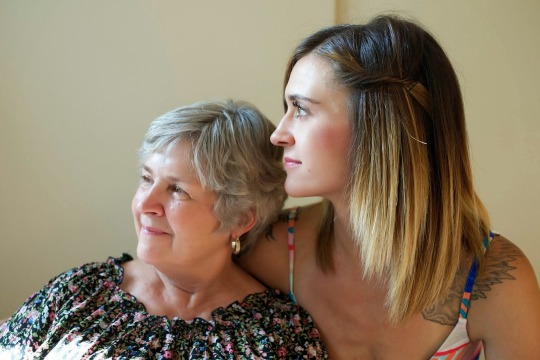The holidays are the perfect time to celebrate with our loved ones and make many new, special memories. When a loved one has Alzheimer’s or dementia, it can be overwhelming for both the patient and the caregiver. Activities that are outside of the regular schedule can throw a person with dementia out of sorts for days. As the disease progresses, finding a holiday strategy that works may involve some missteps. However, through careful planning and setting realistic expectations, it can be made more comfortable and more enjoyable.


Advice for the Caregiver
As a caregiver, you bear the stress of the daily care and routine for your loved one. Another unexpected role is the go-between for healthcare providers, financial transactions, and family. When it comes to the holidays, fulfilling these roles
involve even more stress. Here is some helpful advice to consider when planning those holiday visits:
- Communicate– Talk to visiting family members, particularly the ones who do not often visit and let them know about how their loved one has changed. Include any behaviors they may see, such as needing assistance with eating, or if they aren’t talking much.
- Visit Limits– Keeping the visits to 30 minutes or less for a small group can help avoid overstimulation. These visits can be stretched over a few days to accommodate everyone.
Tips for the Family


Traditions are not going to be the same as they were before dementia, but there’s no reason new traditions cannot be created and enjoyed. Respecting what is best for your loved one will make the planning easier along with these helpful tips:
- Approach– Take it slow when approaching and read their body language cues. Extend a hand, and if they don’t take it, respect that. If they are uncomfortable, they will back up and tense. Don’t ask, “Do you know who I am?” but rather introduce yourself by name and relationship.
- Quality Time– Engage your loved one in a way that matches their current abilities. Bake cookies, sing, color, or have them help prepare a meal. Include them in on conversations, even If their ability to conversate has been lost.
- Gift Ideas– Keep it practical and useful when it comes to gifts. Easy to remove clothing, favorite music, or identification bracelets are some choices. For the caregiver, things that make life easier, such as gift cards for meals, will be much appreciated. Helping with projects that need to be done around the house or offering to help care for your loved one gives a much-needed reprieve for them as well.
If your loved one is in a long-term care facility, bring visits to them. Just add a few items from the tips above, and your holiday time will be gold.
There is no cure for Alzheimer’s and dementia, and current treatments aim to manage systems and behavioral changes. More work is needed to find more effective options that can provide those diagnosed with comfort, dignity, and independence for a more extended time.
To learn more about the upcoming Alzheimer’s and memory loss studies at the Pacific Research Network, call us at .
References:
https://patch.com/new-jersey/newbrunswick/holiday-tips-caregivers-loved-ones-memory-loss



